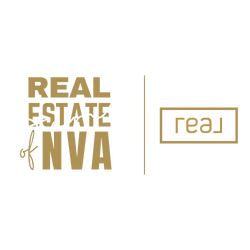Many people feel like their only options for homeownership are to purchase a house themselves or with their romantic partner. However, the trend of co-buying with friends and family is starting to gain more traction. If you can buy a home with a spouse, why can’t you purchase one with your best friends, siblings, or cousins?
Co-buying a house can be an excellent opportunity for those who would struggle to achieve homeownership on their own. The housing market has been incredibly difficult for buyers in the last few years, so joining forces with your friends or family could be your key to success. You should know how co-buying works, what the pros and cons are, and what factors you should consider when creating a co-buying agreement.

Understanding Co-Buying
Co-buying is the process of purchasing property with non-romantic partners. You could co-buy a home with one person or with multiple friends or family members. Sometimes, couples co-buy houses with other couples.
Co-buying may sound unconventional, but it’s very similar to the process of buying a home with your spouse. The major difference is that marriage provides legal financial protections that you don’t have with friends, family members, or a partner you’re not married to. This means that you need to pursue additional legal protection when co-buying.

Pros of Co-Buying a Home
There are numerous advantages to co-buying a house, and the practice is becoming increasingly common. Here are some of the reasons that people choose to co-buy with friends or family members:
- You have more buying power when pooling your income with other people.
- It’s easier to qualify for a mortgage with multiple buyers with multiple sources of income.
- You and your co-buyers can team up to make a larger down payment.
- You and your co-buyers can split the cost of insurance, utilities, repairs, and other expenses.
- You get to live in the company of your friends or family.
Cons of Co-Buying a Home
While co-buying can be a great opportunity, it also has its downsides. Here are some drawbacks to consider before entering a co-buying agreement with a friend or family member:
If the other party has a bad credit score, it could affect your mortgage interest rates.
You may have to make compromises on the location, size of the home, and other important factors.
You’ll be responsible for the full mortgage payment if the other party fails to pay.
If one person wants to move out, it can throw the whole arrangement into jeopardy.
Living with a friend or family member can put a strain on the relationship.

The Importance of a Legal Agreement
Your house may be the largest purchase you ever make. When buying a home with other people, all parties need to be held to a fair agreement. If one person wants to change things or back out of the deal, everyone could suffer financially.
Protecting yourself legally is always important when buying property, but it’s especially vital when co-buying. Before you close on a house, you and your co-buyers should sign a detailed contract that outlines how the home will be purchased, how the monthly payments will be made, how the proceeds will be divided when the home is eventually sold, and what will happen if someone doesn’t hold up their end of the agreement.
Having a clear and specific legal agreement will help you navigate any “what if” scenarios that may arise throughout your co-buying and co-owning experiences. Once you and your co-buyers have a general idea of how, where, and when you’d like to purchase a home, you should consult with a lawyer. The agreement should be finalized before you close on a house.
When purchasing a home as a group, some people form an LLC to hold the title of the home. This way, the LLC can enter legal contracts instead of the individuals. Ask your real estate attorney if creating an LLC would be helpful in your case.

Considerations to Discuss When Co-Buying
If you and a friend or family member are interested in co-buying a house together, there are several essential considerations you should discuss first.
Home Search
Before you start looking at homes, you and your co-buyer should come to an agreement on what type of property you’re looking for. This includes the location, the size, number of bedrooms, and overall condition of the house.
Just like you would when buying a home with a spouse, you and your co-buyer will probably have to make some compromises to find a property that works for both of you. Understanding which qualities are your wants versus your needs can help you make fair compromises.
Finances
Coming to an agreement on how you’ll split the finances of buying a home is just as important as agreeing on the home itself. You and your co-buyer should agree on how much to save for a down payment, how to split the mortgage, and how to split the proceeds when you sell the home.
In many cases, co-buyers split all the payments equally. Sometimes, though, co-buyers decide that other arrangements are more equitable. No matter what arrangement you and your co-buyers come up with, it needs to be documented in a signed legal contract.
Maintenance
Just like you and your co-buyers need to agree on the finances of purchasing a house, you should also come to an agreement on how to manage maintenance tasks. Will you all contribute to a home emergency fund for unexpected repairs? Will you split the labor for preventative maintenance and upkeep?
Exit Strategy
You should only co-buy a house with other people if all parties are sure that the decision is right for them. However, no one can predict the future. There’s always a possibility that one party will need to move out due to unforeseen circumstances.
Agreeing to an exit strategy can help to keep the peace between all the co-buyers and protect everyone in case someone needs to move. For example, your written contract could include terms for homeowners to buy each other out or to rent out a vacant room if necessary.
Managing Disagreements
Although your legal contract will reduce the risk of disputes, disagreements can still come up when co-buying and co-owning a home. Agreeing on how to manage these disputes will help protect everyone even when tensions are high.
You can include dispute resolution in your contract so that everyone who has a grievance feels like they have recourse. For instance, you could agree to seek mediation or arbitration if there’s a disagreement on finances, maintenance, or the sale of the home.

Step Into Homeownership With Co-Buying
Co-buying can make homeownership more financially accessible, especially to first-time buyers. When buying a house with family or friends, you can afford a larger home in a better area. You also get the opportunity to start your homeownership journey with those you love and trust.
Bottom Line
To have the best experience with co-buying, everyone should feel like their voice is heard and the agreement is fair. Work with a real estate attorney to make sure the arrangement is legally sound, and don’t shy away from the difficult conversations with your co-buyers.
As always . . .
Be sure to check out the:
- Home Valuation Tool
- Reach out for your personalized Home Value Report
- Calculate your future mortgage
Don’t forget the Home Buying and Selling Guides !
Never miss an issue by subscribing below and I look forward to speaking with you soon about your free Home Preparation and Market Analysis consultation!




